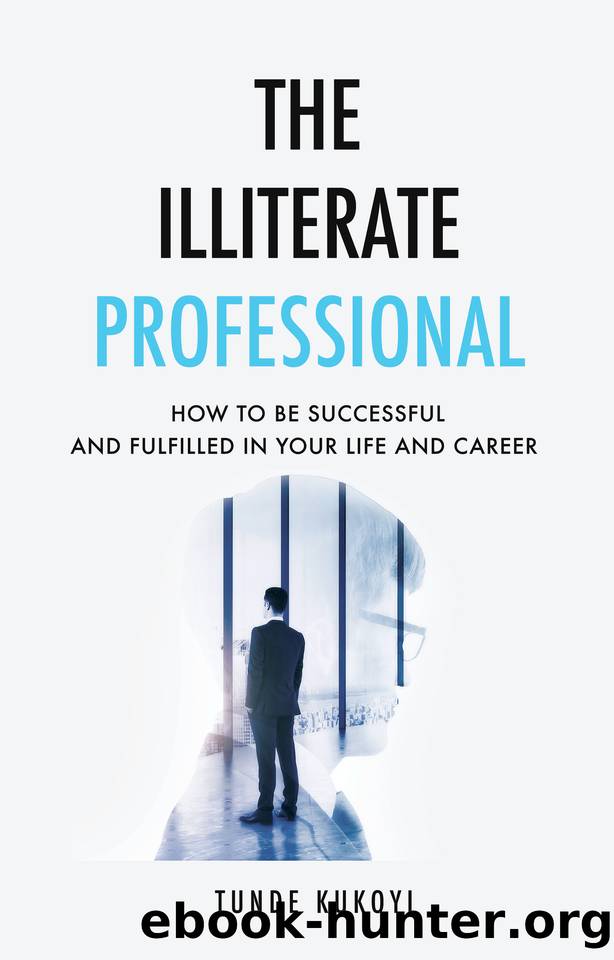The Illiterate Professional: How to be successful and fulfilled in your life and career by Kukoyi Tunde

Author:Kukoyi, Tunde [Kukoyi, Tunde]
Language: eng
Format: epub
Publisher: Tunde Kukoyi
Published: 2020-07-06T16:00:00+00:00
Learning from Practical Examples
Meet Warren Buffett (1930-)
Warren was born in Omaha, Nebraska in 1930 to Leila Buffett (a homemaker) and Howard Buffett (a stockbroker who later served as a Congressman). He is considered by many to be the most successful investor of the 21st century. His primary investment vehicle, Berkshire Hathaway, owns more than 60 companies - including Duracell, the battery company, and Geico, the insurer. He was named the richest man in the world in 2008 and as of May 2020 is worth $69.2 billion.21
Warren has been known to demonstrate sound financial and business acumen since childhood. He made his first investment at the age of 11 when he bought three Cities Services shares at $38 per share. By the age of 13, he was already running his own business. Warren operates a principle called Value Investing which he learned from his mentor Benjamin Graham. His company’s investment portfolio includes holdings in well-known companies such as Coca Cola, Bank of America and Apple Inc. In 2010, he was named in the Foreign Policy 2010 Report as the Most Influential Global Thinker, in conjunction with Bill Gates. In 2011, he was awarded the Presidential Medal of Freedom by President Barack Obama.
I have decided to highlight Warren in this chapter because of how he has successfully planned what would happen to his fortune after his death. Although Warren is one of the richest men in the world today, he has decided to donate up to 99% of his wealth to charity, most notably the Bill & Melinda Gates Foundation. He has instructed his will executors not to sell his shares but to rather give them away through annual gifts, 10 years after he has passed away. This saves him from having to pay capital gains tax from the sale of the shares. Rather, he would get charitable deductions based on the fair value of the stock. This demonstrates prudent financial planning.
Warren believes in self-sufficiency and promotes good work ethics in his family so, unlike most people, he has no plans of leaving his inheritance to his children. The remaining 1% which he is leaving behind for his wife is still a significant amount of money, and being the financially savvy person that he is, he has made plans for even this money. He has advised that 10% of this be used to purchase government-backed bonds and the remaining 90% be invested in passively managed low-cost index funds.22 This is because he believes index funds would do better than any portfolio manager or financial planner in the long run.
The purpose of this example is not to get you to design your estate and inheritance plans like Warren Buffet’s. The aim is to highlight the importance of having plans for your money while you are still here, and even after you leave. After all, you have worked for or earned it over the years, so you should have a say regarding how it should be put to good use.
Download
This site does not store any files on its server. We only index and link to content provided by other sites. Please contact the content providers to delete copyright contents if any and email us, we'll remove relevant links or contents immediately.
The Compound Effect by Darren Hardy(7545)
Tools of Titans by Timothy Ferriss(6934)
Nudge - Improving Decisions about Health, Wealth, and Happiness by Thaler Sunstein(6629)
Win Bigly by Scott Adams(6306)
Pioneering Portfolio Management by David F. Swensen(5599)
Deep Work by Cal Newport(5452)
Principles: Life and Work by Ray Dalio(5315)
The Barefoot Investor by Scott Pape(5305)
Rich Dad Poor Dad by Robert T. Kiyosaki(5140)
Grit by Angela Duckworth(4728)
The Slight Edge by Jeff Olson(4716)
Discipline Equals Freedom by Jocko Willink(4629)
The Motivation Myth by Jeff Haden(4521)
Digital Minimalism by Cal Newport;(4509)
You Are a Badass at Making Money by Jen Sincero(4246)
The Four Tendencies by Gretchen Rubin(4014)
The Confidence Code by Katty Kay(3560)
Eat That Frog! by Brian Tracy(3505)
Captivate by Vanessa Van Edwards(3292)
